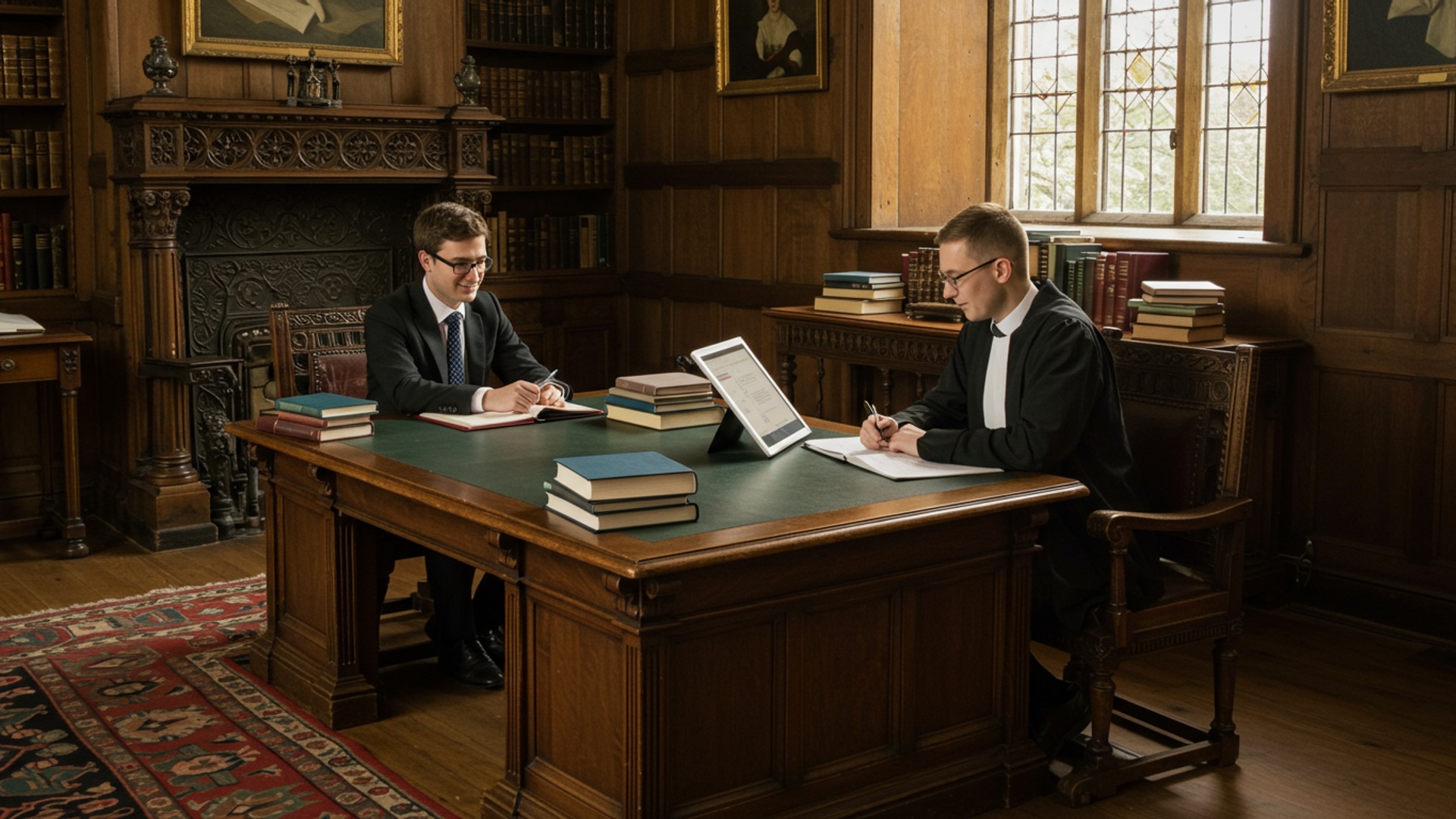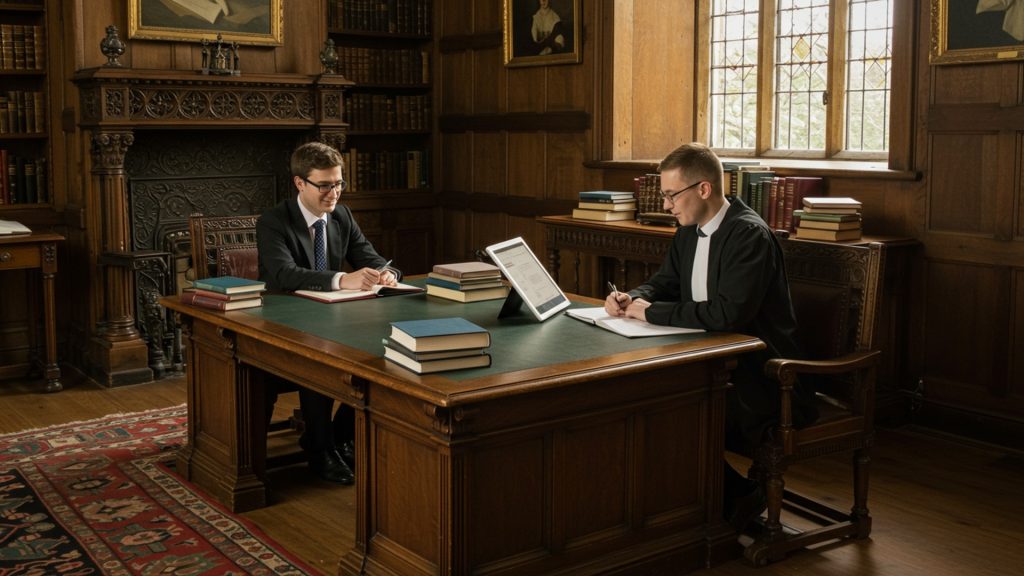The University of Oxford stands as a global beacon of intellectual rigor, its enduring legacy inextricably linked to a pedagogical model virtually unrivaled: the tutorial system. Far from passive lectures, this intensive, often one-on-one or small-group engagement with a leading academic forces students to articulate, defend. refine their arguments, fostering unparalleled critical thinking and independent scholarship. This personalized crucible, recently highlighted in discussions around adaptable leadership for an AI-driven world, cultivates future leaders capable of dissecting complex problems and forging innovative solutions. It’s a method that transcends mere knowledge transfer, actively shaping minds equipped for profound intellectual and societal impact.

The Heart of Oxford: Demystifying the Tutorial System
At the core of the educational experience at the University of Oxford lies its distinctive and globally renowned tutorial system. Unlike the large lecture halls or seminar rooms prevalent in many universities worldwide, Oxford’s tutorial system offers an intensely personalized and intellectually stimulating method of learning. But what exactly is a ‘tutorial’?
In essence, a tutorial is a small-group teaching session, typically involving one student and one tutor, or occasionally two students and one tutor. These sessions are the primary mode of instruction for undergraduates studying most subjects at the University of Oxford. Rather than passively receiving details, students are actively engaged in deep discussion, debate. critical analysis of a particular topic. This intimate setting stands in stark contrast to the more traditional university model, where learning often revolves around larger lectures complemented by less frequent, larger group seminars.
- Intimate Setting: One or two students with a dedicated tutor.
- Core Instruction: The primary method of teaching for most undergraduate degrees.
- Active Engagement: Focus on discussion, debate. critical analysis, not passive listening.
A Socratic Dialogue: The Art of Learning Through Questioning
The tutorial system at the University of Oxford is often described as a modern-day application of the Socratic method. Students are typically assigned an essay or a set of problems to complete before each tutorial. They then present their work to their tutor, who, instead of simply correcting mistakes, engages them in a rigorous intellectual interrogation.
Imagine this: a student has spent a week researching and writing an essay on a complex philosophical concept. In the tutorial, the tutor doesn’t just read the essay; they challenge every assumption, question every conclusion. push the student to defend their arguments with logical rigor and evidence. “Why do you say that?” “What if we consider this alternative perspective?” “Can you explain that point more clearly, perhaps with an example?” This relentless questioning forces students to think on their feet, articulate their thoughts precisely. develop a robust defense of their ideas. It’s not about being right or wrong. about the process of intellectual exploration and growth.
Tailored Education: Personalization at its Pinnacle
One of the most profound benefits of the tutorial system is its unparalleled degree of personalization. Because the tutor is working with only one or two students, they can meticulously tailor the learning experience to the individual’s needs, strengths. weaknesses. This is a level of bespoke education rarely found elsewhere.
A tutor at the University of Oxford quickly identifies where a student excels and where they struggle. If a student grasps a concept quickly, the tutor can move swiftly to more advanced material, pushing their boundaries. Conversely, if a student is finding a particular area challenging, the tutor can dedicate more time to it, exploring different angles and resources until understanding is achieved. There’s no hiding in a tutorial; every student is seen, heard. intellectually engaged. This direct, continuous feedback loop ensures that no student falls behind and that every student is challenged to reach their absolute potential.
Cultivating Intellectual Independence and Resilience
The intensive nature of the tutorial system fosters not just knowledge acquisition. also crucial intellectual and personal attributes. Students quickly learn to become self-directed learners, responsible for their own academic progress. The expectation to research, write. defend an essay every week instills discipline and time management skills.
Moreover, receiving direct, often critical, feedback on their work teaches students invaluable lessons in resilience and intellectual humility. It’s a challenging environment where ideas are rigorously tested. students learn that criticism is not personal. a vital part of intellectual development. This process cultivates a robust ability to:
- Think Independently: Formulate original ideas and arguments.
- Embrace Criticism: View feedback as an opportunity for growth.
- Problem-Solve Creatively: Tackle complex issues with innovative solutions.
- Develop Intellectual Courage: Defend one’s convictions while remaining open to new evidence.
This rigorous training builds a profound sense of confidence in one’s intellectual capabilities, preparing students to face complex challenges far beyond their academic years.
Beyond Academics: Shaping Future Leaders and Thinkers
The skills honed through the tutorial system at the University of Oxford extend far beyond academic success. They are precisely the attributes sought after in leaders across various fields. The ability to articulate complex ideas clearly, to persuade through reasoned argument, to assess problems deeply. to think critically under pressure are invaluable in any profession.
Alumni of the University of Oxford, many of whom attribute their success to the tutorial system, have gone on to excel as prime ministers, Nobel laureates, pioneering scientists, influential writers. captains of industry. While specific anecdotes are numerous, the common thread is the development of individuals who are not just knowledgeable. also capable of original thought, effective communication. decisive action. The system teaches you how to think, not just what to think, equipping graduates with a versatile toolkit for navigating and shaping the world.
The Tutor’s Role: Mentor, Guide. Challenger
The effectiveness of Oxford’s tutorial system rests heavily on the caliber of its tutors. These are not just teachers; they are often world-leading academics, active researchers. experts in their respective fields. They bring a depth of knowledge and a passion for their subject that is truly inspiring.
The tutor’s role is multi-faceted:
- Academic Expert: Providing cutting-edge insights and guiding students through advanced topics.
- Intellectual Challenger: Pushing students to think more deeply and critically.
- Personal Mentor: Offering guidance on academic trajectory, research interests. even career paths.
- Feedback Provider: Delivering targeted, constructive criticism essential for improvement.
This close working relationship with a leading academic means students gain an unparalleled insight into their chosen discipline, learning directly from those who are actively shaping it.
The Tutorial System in Action: A Student’s Perspective
Consider ‘Eleanor,’ an undergraduate history student at the University of Oxford. In her first term, she found the tutorials daunting. Each week, she’d spend days in the Bodleian Library, poring over primary sources, crafting an essay on a specific historical event. The thought of presenting it to her tutor, a renowned historian, filled her with apprehension. Her initial essays, while well-researched, often lacked a strong, coherent argument.
In her early tutorials, her tutor would patiently dismantle her arguments, not to diminish her. to show her the cracks in her reasoning. “Eleanor,” her tutor might say, “you’ve presented excellent evidence here. how does it directly support your thesis? Is there an alternative interpretation of this source you haven’t considered?” Eleanor would leave feeling exhausted but incredibly invigorated, seeing her subject with newfound clarity.
By her second year, Eleanor had transformed. She approached tutorials not with fear. with anticipation. She learned to anticipate counter-arguments, to structure her essays with an unassailable logic. to engage in spirited, yet respectful, intellectual debate. One particularly challenging tutorial involved a debate about the causes of the English Civil War, where her tutor played devil’s advocate for an entire hour, forcing Eleanor to re-evaluate every premise she held. That experience, she later reflected, was her “aha!” moment – the point where she truly understood the nuance and complexity of historical interpretation. The University of Oxford’s unique system had not just taught her history; it had taught her how to think like a historian.
Conclusion
Oxford’s tutorial system isn’t merely a teaching method; it’s a crucible for intellectual independence, shaping individuals who don’t just absorb knowledge but critically engage with it. To truly embody this spirit, I’d suggest approaching every complex problem, whether academic or professional, as a mini-tutorial. Don’t passively consume data. Instead, actively question, formulate your own arguments. anticipate counter-arguments, much like preparing for a rigorous discussion with a world expert. This rigorous intellectual sparring, often just between two people, cultivates a rare resilience of thought. In our age of insights overload and rapidly evolving AI, the capacity to synthesize disparate ideas, challenge prevailing narratives. articulate nuanced perspectives – precisely what Oxford fosters – is more crucial than ever. It’s about developing the ‘human layer’ of critical judgment that technology can’t replicate. So, whether you aspire to Oxford or simply seek to lead with greater acumen, embrace this timeless approach: challenge, question. relentlessly pursue deeper understanding. Your future leadership depends on it.
More Articles
Navigating Top MBA Programs: A Practical Guide to Choosing the Right Fit for Your Goals
Boost Your SAT Score: Practical Strategies for Achieving Your College Dreams
Discovering Your Path: Making the Most of Liberty University’s Unique Academic Community
Top French Universities 2025: Uncovering the Best for Your Academic Journey
FAQs
What exactly is this ‘tutorial system’ everyone talks about at Oxford?
The tutorial system is Oxford’s unique teaching method. It involves students meeting individually or in very small groups (usually 2-3) with an expert academic, known as a tutor, for an hour. During these sessions, you’ll discuss an essay you’ve written, problems you’ve solved, or a specific topic, diving deep into the subject matter.
Sounds intense! How often do these tutorials happen?
It varies by subject and course. typically you can expect to have one or two tutorials per week. Each tutorial requires significant preparation beforehand, usually involving extensive reading and then writing an essay or completing a set of problems to discuss with your tutor.
What’s so special about learning this way? How does it actually help students?
The tutorial system is incredibly powerful because it’s highly personalized. You receive direct, immediate. tailored feedback on your ideas and arguments. It forces you to articulate your thoughts clearly, defend your views. engage in critical, independent thinking on the spot. It’s about developing a profound understanding and intellectual agility, not just rote memorization.
Do students feel pressured in these one-on-one sessions?
While it can certainly be challenging and demand a high level of engagement, the system is designed to be stimulating and intellectually rewarding, rather than just pressure-filled. Tutors aim to push your boundaries and encourage deep intellectual growth. It’s a unique opportunity to explore complex ideas in a focused, supportive environment, make mistakes. learn directly from an expert.
How does this system really ‘shape future leaders,’ as the title suggests?
By consistently challenging students to think independently, articulate complex ideas under scrutiny, review critically. defend their positions, the tutorial system hones essential leadership skills. It builds confidence, intellectual agility, strong communication abilities. the capacity for innovative thought – all qualities crucial for effective leadership in any field.
Is the tutorial system the only way you learn at Oxford?
No, it’s a foundational element. not the sole method. Tutorials are complemented by a rich array of learning experiences including lectures, seminars, practical classes. extensive independent study. This blended approach ensures a comprehensive and multi-faceted education, with tutorials providing the intensive, personalized core.
Who are the tutors, anyway? Are they just teaching assistants?
Absolutely not! Oxford tutors are leading academics, often world-renowned experts in their respective fields. They are active researchers and professors who bring their cutting-edge knowledge, latest discoveries. passion directly into your teaching experience. You’re essentially getting direct mentorship from some of the best minds in the world.



